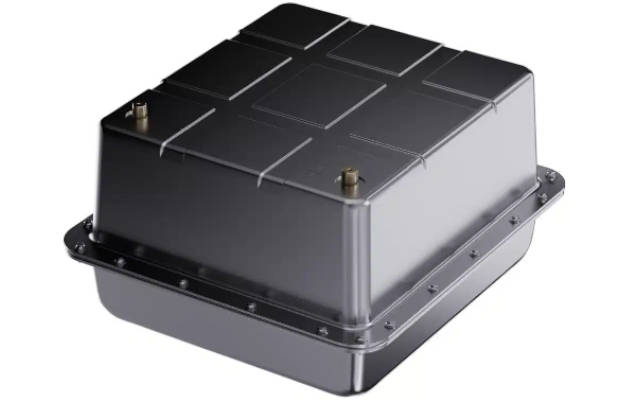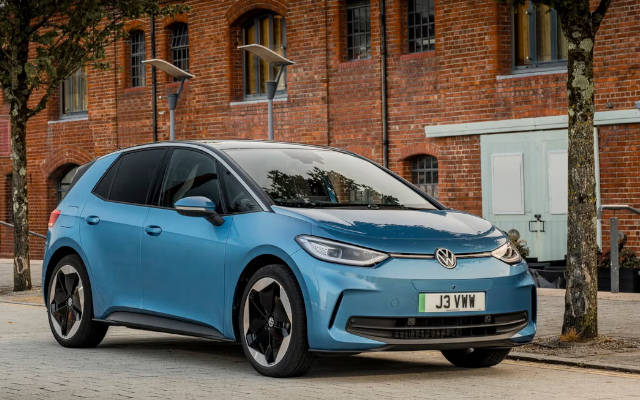 EDITOR'S PICK
EDITOR'S PICK
Dead EV Batteries Are Hoarding a Shocking Amount of Useful Lithium
15 Aug 2025 | Synopsis
 Dead EV batteries retain nearly 80% of their lithium capacity but most end up in landfills. Australian researchers show recycling could recover 99% pure lithium plus nickel and cobalt while producing 61% less carbon than mining. Recycling uses 83% less energy and 79% less water than extraction. With 13% annual battery market growth, waste could hit 137,000 tons yearly in Australia alone. Untapped goldmine of materials sitting idle.
Dead EV batteries retain nearly 80% of their lithium capacity but most end up in landfills. Australian researchers show recycling could recover 99% pure lithium plus nickel and cobalt while producing 61% less carbon than mining. Recycling uses 83% less energy and 79% less water than extraction. With 13% annual battery market growth, waste could hit 137,000 tons yearly in Australia alone. Untapped goldmine of materials sitting idle.Stuck Off the Grid: How Wyoming's Pioneer Agri-Solar Farm Hit a Transmission Wall
15 Aug 2025 | Synopsis
 Cowboy Energy's $155M Wyoming agrivoltaics project - combining solar panels with cattle grazing - sits fully permitted but can't connect to grid. Tri-State Transmission offers 2034 start date, 9 years away, despite transmission lines crossing the property. Kafkaesque 45-day annual application windows and 18+ month reviews strangle renewable projects and in Wyoming coal politics can complicate matters.
Cowboy Energy's $155M Wyoming agrivoltaics project - combining solar panels with cattle grazing - sits fully permitted but can't connect to grid. Tri-State Transmission offers 2034 start date, 9 years away, despite transmission lines crossing the property. Kafkaesque 45-day annual application windows and 18+ month reviews strangle renewable projects and in Wyoming coal politics can complicate matters.Breakthrough or Mirage? The Real Economics Behind Bill Gates' Hydrogen Superyacht
15 Aug 2025 | Synopsis
 Bill Gates' hydrogen-powered superyacht Breakthrough offers silent, zero-emission cruising - but at a steep cost. With limited refueling infrastructure and green hydrogen priced at $36/kg, clean sailing runs $59 per nautical mile. HVO diesel remains the practical fallback. While Breakthrough showcases innovation, EVWorld.com asks the hard questions: Is hydrogen truly viable for marine travel, or just a billionaire's experiment?
Bill Gates' hydrogen-powered superyacht Breakthrough offers silent, zero-emission cruising - but at a steep cost. With limited refueling infrastructure and green hydrogen priced at $36/kg, clean sailing runs $59 per nautical mile. HVO diesel remains the practical fallback. While Breakthrough showcases innovation, EVWorld.com asks the hard questions: Is hydrogen truly viable for marine travel, or just a billionaire's experiment?New EV battery That's Made From Salt Could Last For 3,600,000 Miles
14 Aug 2025 | Synopsis
 CATL's new Naxtra sodium-ion "salt" EV battery costs just $10–$19/kWh - about one-tenth of current lithium-ion prices (~$100–$115/kWh). It retains 85% capacity after 3.6M miles, charges at up to 5C (full in ~12 min), and goes 30–80% in 30 min even at –30 °C with ~93% usable capacity. The low cost, long life, and cold-weather performance could transform EV affordability and durability.
CATL's new Naxtra sodium-ion "salt" EV battery costs just $10–$19/kWh - about one-tenth of current lithium-ion prices (~$100–$115/kWh). It retains 85% capacity after 3.6M miles, charges at up to 5C (full in ~12 min), and goes 30–80% in 30 min even at –30 °C with ~93% usable capacity. The low cost, long life, and cold-weather performance could transform EV affordability and durability.Volkswagen's U.K Division Is Locking ID.3 Horsepower Behind a Subscription
14 Aug 2025 | Synopsis
 British-market buyers can now opt to pay a monthly fee for that horsepower increase..details in fine print, where a disclaimer notes that "Engine power is [148 hp] as standard, [168 hp] if you activate the optional power upgrade for a fee."
British-market buyers can now opt to pay a monthly fee for that horsepower increase..details in fine print, where a disclaimer notes that "Engine power is [148 hp] as standard, [168 hp] if you activate the optional power upgrade for a fee.""...the fee is equivalent to $22.50 per month, $225 for a year, or a one-time purchase of $878...the one-time purchase is priced the same as 39 months of monthly subscription..."
 EVWorld Exclusive
EVWorld Exclusive
Unlocking Heat's Hidden Potential: How a Nanoscale Discovery Could Transform Everyday Tech
24 Oct 2025 |  A recent nanoscale physics breakthrough reveals heat can transfer across tiny gaps far more efficiently than expected - up to 100 times greater than classical predictions. This could revolutionize cooling and energy systems in electronics, EVs, and smart appliances. While engineering challenges remain, early applications may emerge within 3-5 years, with broader consumer adoption possible in the next decade. The future of heat management may be silent, solid-state, and radically efficient.
A recent nanoscale physics breakthrough reveals heat can transfer across tiny gaps far more efficiently than expected - up to 100 times greater than classical predictions. This could revolutionize cooling and energy systems in electronics, EVs, and smart appliances. While engineering challenges remain, early applications may emerge within 3-5 years, with broader consumer adoption possible in the next decade. The future of heat management may be silent, solid-state, and radically efficient.
Turning the Energy Crunch into a Smart Grid Revolution
24 Oct 2025 |  America's energy crunch is not about supply - it's about coordination. Virtual power plants and vehicle-to-grid systems offer a scalable, software-driven solution to rising demand from AI, EVs, and climate volatility. By turning homes, vehicles, and businesses into active grid assets, and aligning policy with technology, the U.S. can build a smarter, more resilient energy future without building more power plants. The tools exist - now it's time to connect them.
America's energy crunch is not about supply - it's about coordination. Virtual power plants and vehicle-to-grid systems offer a scalable, software-driven solution to rising demand from AI, EVs, and climate volatility. By turning homes, vehicles, and businesses into active grid assets, and aligning policy with technology, the U.S. can build a smarter, more resilient energy future without building more power plants. The tools exist - now it's time to connect them.
Auto Retail in 2025: Bridging the Trust Gap Between Dealers and Buyers
24 Oct 2025 |  The 2025 Urban Science and Harris Poll report reveals a growing disconnect between dealers and buyers. While dealers embrace EVs, AI, and digital tools, many buyers remain cautious - especially about full electrification and online-only retail. Brand loyalty is weakening, and policy clarity is key to adoption. The future of auto retail depends on bridging trust, flexibility, and infrastructure gaps.
The 2025 Urban Science and Harris Poll report reveals a growing disconnect between dealers and buyers. While dealers embrace EVs, AI, and digital tools, many buyers remain cautious - especially about full electrification and online-only retail. Brand loyalty is weakening, and policy clarity is key to adoption. The future of auto retail depends on bridging trust, flexibility, and infrastructure gaps.
Electric Icons in the Making: Audi Concept C vs. Chevrolet Corvette EV
23 Oct 2025 |  Audi's Concept C previews a refined electric GT built on the mature PPE platform, likely arriving by 2026. Chevrolet's Corvette EV promises supercar performance but faces packaging and thermal challenges. Audi is closer to production; Corvette remains in early development. Both reflect divergent strategies in electrifying legacy sports cars, with Audi emphasizing platform maturity and Chevrolet pursuing brand continuity through engineering innovation.
Audi's Concept C previews a refined electric GT built on the mature PPE platform, likely arriving by 2026. Chevrolet's Corvette EV promises supercar performance but faces packaging and thermal challenges. Audi is closer to production; Corvette remains in early development. Both reflect divergent strategies in electrifying legacy sports cars, with Audi emphasizing platform maturity and Chevrolet pursuing brand continuity through engineering innovation.
Electrification Is Not an Oversimplification
23 Oct 2025 |  Despite critiques that the quest for global electrification is "simplistic", the transition is strategic and necessary. Grid upgrades, battery innovation, and tailored policies make electrification viable. Sodium-ion batteries and recycling reduce material risk. Compared to fossil fuels, electrification offers cleaner, safer, and more resilient systems. Complexity demands better design - not delay.
Despite critiques that the quest for global electrification is "simplistic", the transition is strategic and necessary. Grid upgrades, battery innovation, and tailored policies make electrification viable. Sodium-ion batteries and recycling reduce material risk. Compared to fossil fuels, electrification offers cleaner, safer, and more resilient systems. Complexity demands better design - not delay.
SEARCH RSSTREAM
 16 New Postings In Past 24 Hours
16 New Postings In Past 24 Hours
Category:mobility
Region:NoAmerica
Date:26 Oct 2025
Category:mobility
Region:AsiaPacific
Date:26 Oct 2025
Category:recall
Region:NoAmerica
Date:26 Oct 2025
Category:energy
Region:Europe
Date:26 Oct 2025
Category:mobility
Region:Europe
Date:26 Oct 2025
Category:policy
Region:NoAmerica
Date:26 Oct 2025
Category:mobility
Region:NoAmerica
Date:26 Oct 2025
Category:mobility
Region:Europe
Date:26 Oct 2025
Category:mobility
Region:Europe
Date:26 Oct 2025
Category:energy
Region:NoAmerica
Date:26 Oct 2025
Category:finance
Region:NoAmerica
Date:26 Oct 2025
Category:environment
Region:Global
Date:25 Oct 2025
Category:finance
Region:NoAmerica
Date:25 Oct 2025
Category:finance
Region:NoAmerica
Date:25 Oct 2025
Category:mobility
Region:Europe
Date:25 Oct 2025
Category:energy
Region:Europe
Date:25 Oct 2025
Category:environment
Region:MidEast
Date:25 Oct 2025
Category:mobility
Region:AsiaPacific
Date:25 Oct 2025
Category:finance
Region:NoAmerica
Date:25 Oct 2025
Category:mobility
Region:Global
Date:25 Oct 2025
